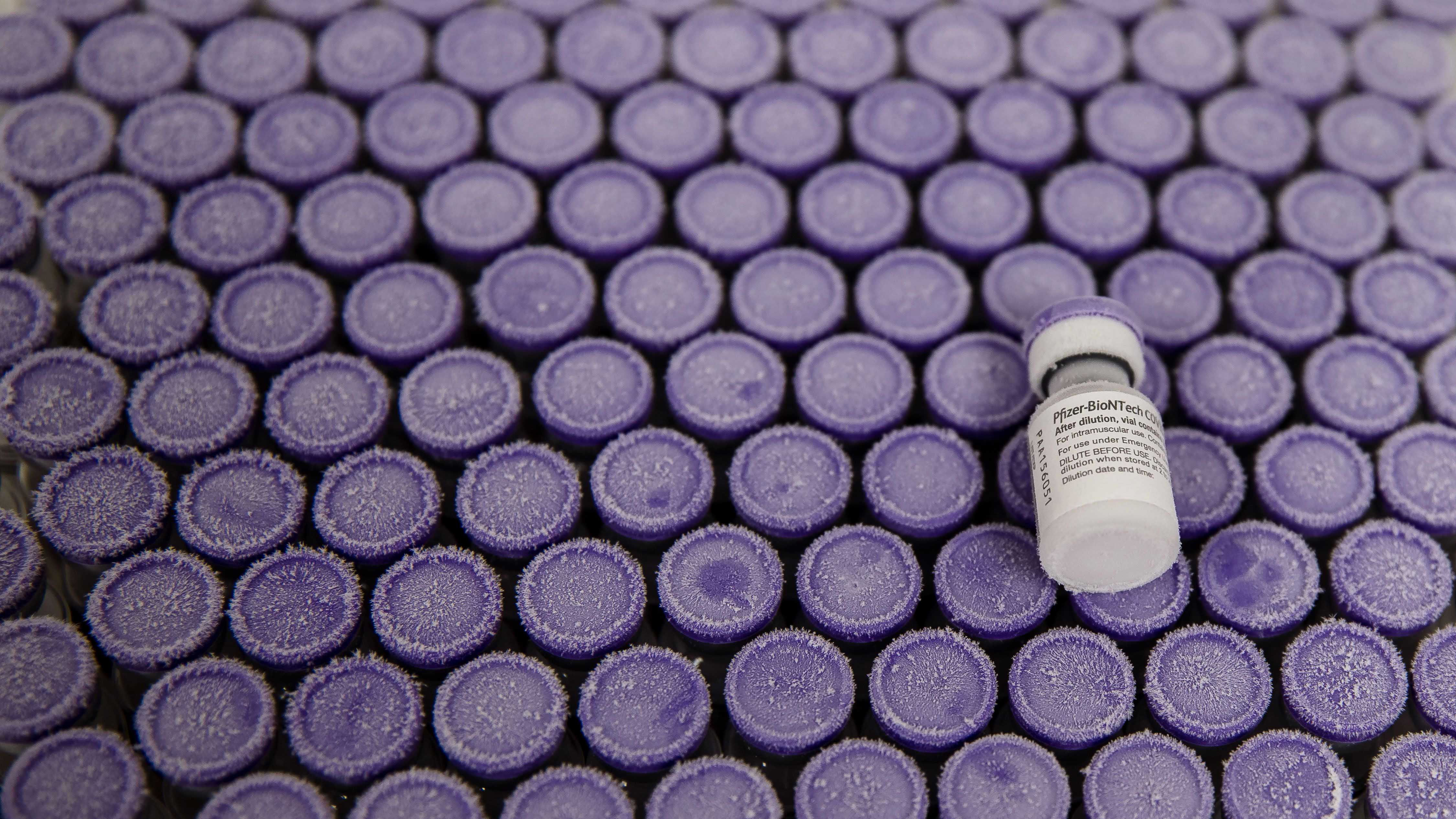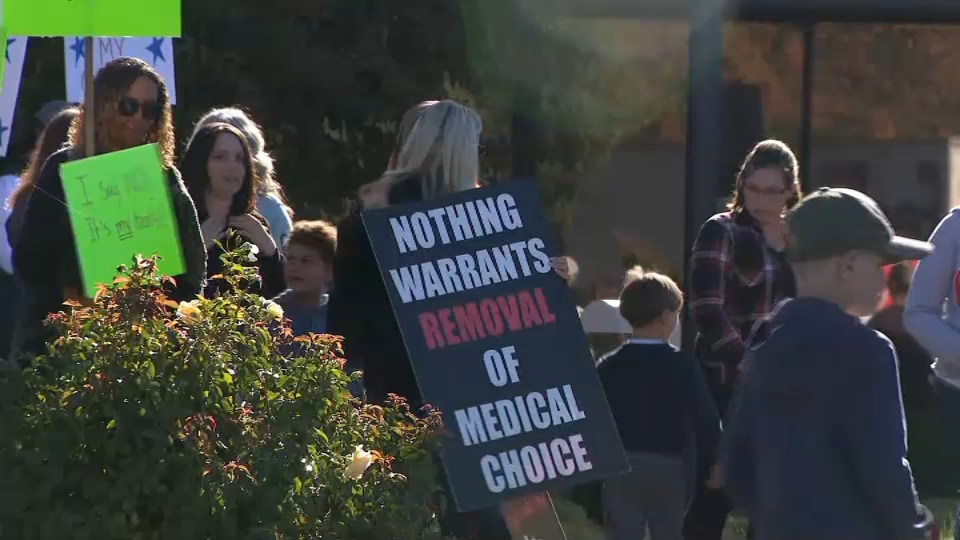Public health departments across California are gearing up to administer coronavirus vaccines to children ages 5 to 11 in the coming weeks and officials say they are planning "family-friendly" events — including at schools — to persuade parents and guardians to get their kids vaccinated.
The White House on Wednesday detailed plans for the expected authorization of the Pfizer shot for elementary school youngsters in a matter of weeks. Federal regulators will meet over the next two weeks to weigh the safety and effectiveness of giving low-dose shots to the roughly 28 million children in that age group.
Within hours of formal approval, which is expected after the Food and Drug Administration signs off and a Centers for Disease Control and Prevention advisory panel meets on Nov. 2-3, millions of doses will begin going out to providers across the country, along with the smaller needles needed for injecting young children.
State officials are planning to use school clinics, in addition to other sites, to administer vaccines to youths, according to the California Department of Public Health.
The state also plans to continue masking requirements in K-12 schools. Gov. Gavin Newsom announced earlier this monththat California would have the nation’s first coronavirus vaccine mandate for schoolchildren — about 6.7 million public and private school students in the nation’s most populous state — once the federal government has finished fully vetting the shots.
California has one of the highest vaccine rates in the country, but a vocal minority skeptical of both the vaccine and the government’s assurances of its safety.Last month, more than a thousand peoplegathered at the state Capitol to protest vaccine mandates.
In Los Angeles County, the nation’s most populous with 10 million residents, there are about 900,000 children between 5 and 11 years old. While they make up about 9% of the county's population, they’ve become 6% of the county’s nearly 1.5 million coronavirus cases.
County officials expect to receive about 95,000 first doses of Pfizer by Nov. 1 if the current federal timeline stays the same, according to Barbara Ferrer, the county’s public health director.
As part of the county’s rollout, health officials will begin next week talking to parents and caregivers to get out in front of potential misinformation about the shots as federal approvals are pending, Ferrer told The Associated Press in an interview.
Get a weekly recap of the latest San Francisco Bay Area housing news. Sign up for NBC Bay Area’s Housing Deconstructed newsletter.
“We like to be ready immediately because we know there’s some pent-up demand here,” Ferrer said. “There are a lot of parents who have a lot of questions. There are also a lot of parents who are desperate to get their kids vaccinated. So we’re going to be ready here to do that.”
The county is also working to prepare its existing network of Pfizer providers to be able to administer the shots for kids as soon as possible. In the last five months, the public health department has also worked to add more than 300 pediatricians and pediatric providers to its network in preparation for this vaccine's approval.
LA County is also working to expand its vaccine capabilities at schools, particularly in areas that have been devastated by the virus. There have already been 800 vaccine clinics at school sites and more than 360 additional ones — 60% to 70% of them are in hard-hit communities — are scheduled.
“Our efforts are always to prioritize pediatric clinics and services that are in the hardest-hit communities,” Ferrer said.
In San Francisco, public health officials are planning to host “family-friendly” vaccination events and virtual town halls that cater to parents and caregivers who have questions about pediatric vaccines.
Four school-based vaccination sites will be able to administer as many as 250 doses a day, according to the San Francisco Department of Public Health.
The agency anticipates it will be able to administer 25,000 vaccine doses per week across its nearly 100 sites citywide to eligible children, first-time adults and third-dose boosters. Priority will be given to those seeking their first and second doses, including youngsters.



